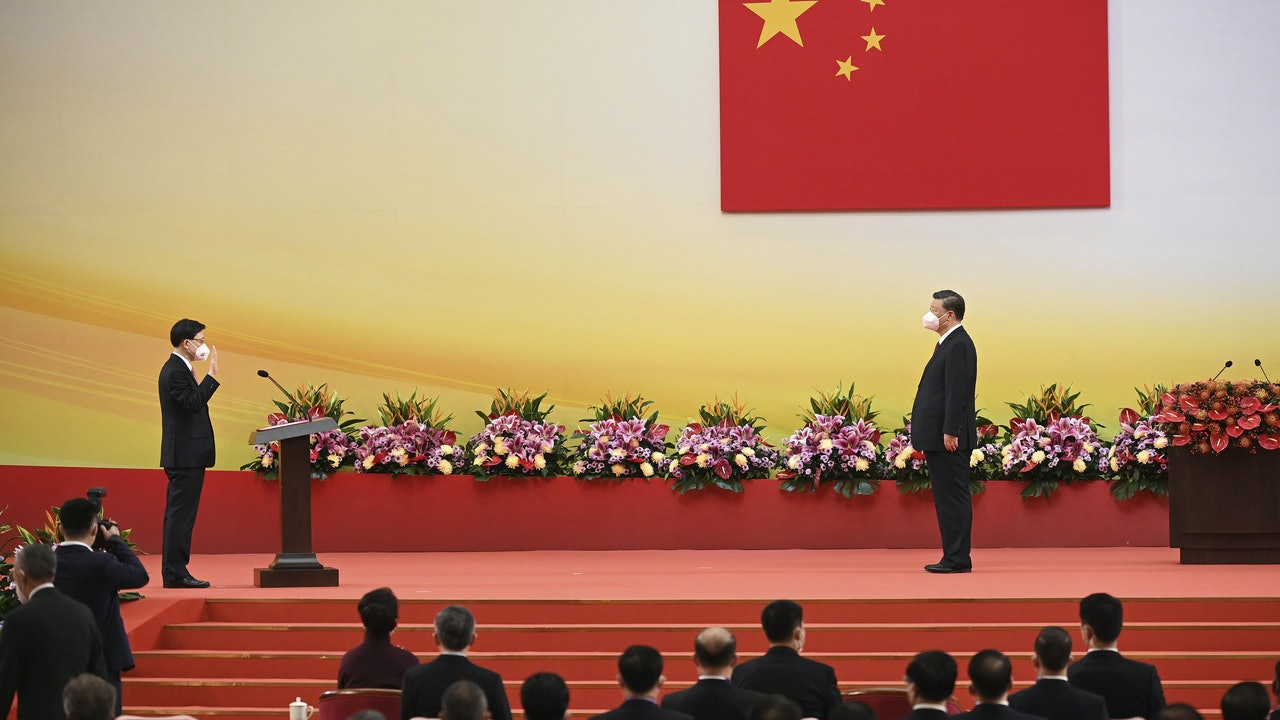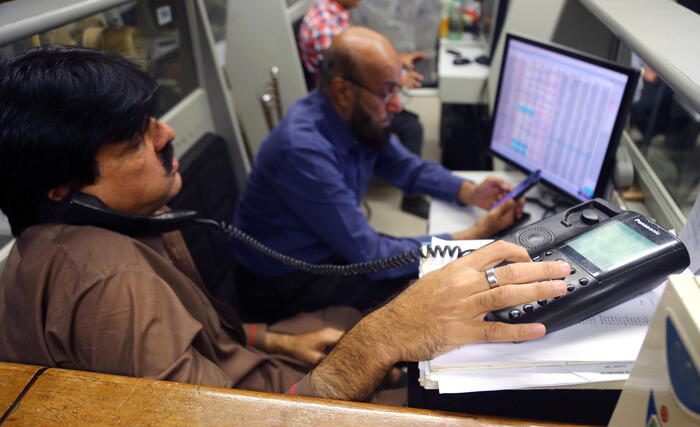After the Central Government released the white paper "Taiwan Question and China's Unification in the New Era", officials of the SAR government unsurprisingly issued a statement expressing their welcome and support. Chief Executive Li Jiachao pointed out that the successful practice of "One Country, Two Systems" in Hong Kong is the key to maintaining Hong Kong's long-term prosperity and stability. It is an important cornerstone and fully supports and cooperates with the central government to take necessary measures to uphold the one-China principle.
The cause of China's reunification is of course the responsibility of the Hong Kong SAR, but when it comes to the contribution that Hong Kong can make, such a statement is obviously not enough.
On the contrary, it can be said that Hong Kong has been dragging its feet in the cause of reunifying Taiwan in recent years.
The white paper criticizes some forces in Taiwan for misinterpreting and slandering "one country, two systems", which has caused some Taiwanese to have a biased perception.
Hong Kong, which provides a dry environment and a large amount of firewood, can only be blamed for someone else being able to light a prairie fire so easily.
"One Country, Two Systems" is Hong Kong and Taiwan
The hype of "Hong Kong today, Taiwan tomorrow" is not entirely true.
First, Beijing's adjustment to Hong Kong's governance is not groundless, it is a last resort to deal with separatism, and any discussion should not be drawn away from this context.
Second, the actual situation in Hong Kong itself is different from that in Taiwan. At present, the government system and military force of the Taiwan authorities are quite mature. The central government's "one country, two systems" approach to Taiwan must be tailor-made. It is impossible to simply use the situation in Hong Kong as an analogy.
But even so, we cannot deny that Hong Kong, as a special administrative region under "one country, two systems", will inevitably have an impact on the cause of reunification of Taiwan.
As we all know, "One Country, Two Systems" was originally created to unify Taiwan.
On New Year's Day 1979, the Standing Committee of the National People's Congress issued the "Message to Compatriots in Taiwan", promising to "respect the status quo of Taiwan and the opinions of people from all walks of life in Taiwan when resolving the issue of reunification, and adopt reasonable and reasonable policies and measures." As long as Taiwan returns to the motherland, we will respect the reality there and the current system." It can be described as the origin of "one country, two systems".
The subsequent "Ye Jiutiao" pointed out that "Taiwan can be regarded as a special administrative region and enjoy a high degree of autonomy", and "Deng Liutiao" further stated that "Taiwan Special Administrative Region can have its own independence and can implement a system different from that of the mainland. Judicial independence. The power of final adjudication does not need to go to Beijing. Taiwan can still have its own army, but it cannot pose a threat to the mainland.”
During the same period, not only did Beijing start negotiations with the United Kingdom on the future of Hong Kong, but Liao Chengzhi, one of the people in charge of Taiwan, was also in charge of Hong Kong policy.
In fact, Hong Kong has always played a role between the mainland and Taiwan.
In 1982, Liao Chengzhi's "Letter to Mr. Chiang Ching-kuo" entered Taiwan through a Hong Kong newspaper and was successfully published without filing for inspection.
Before the three links between the two sides of the strait were realized, Hong Kong was a transit point for Taiwanese passengers entering the mainland for many years.
The working talks held by the SEF and ARATS in 1992 were also held in Hong Kong, laying the foundation for the historic Wang-Gu talks the following year.
After the return of Hong Kong, Ma Ying-jeou visited Hong Kong twice as the mayor of Taipei.
After the turmoil against the amendment bill, Ma Ying-jeou criticized the "one country, two systems" principle into history.
(Ma Ying-jeou Facebook)
The Experience and Role of Hong Kong's "One Country, Two Systems"
After the reunification, the relationship between Hong Kong and the mainland was close and good for a time.
In 2007, the Standing Committee of the National People's Congress approved the universal suffrage of the Chief Executive and the Legislative Council in 2017. The 2008 Sichuan earthquake and the Beijing Olympics inspired the national identity of Hong Kong society.
Polls at the time showed that 80% of Hong Kong people opposed "Taiwan independence", and 60% believed that "one country, two systems" applies to Taiwan.
At about the same time, Taiwan walked out of Chen Shui-bian's eight-year "Taiwan independence" line, elected Ma Ying-jeou who was "not unified, independent, and non-military" and abandoned Hsieh Chang-ting, who "reformed Taiwan and established a country by the sea."
Although Taiwanese society's views on cross-strait relations involve many factors, it is hard to say that Hong Kong's "demonstration" has no impact at all.
In 2008, Leung Chun-ying, the then convener of the Executive Council, also pointed out that Hong Kong has experience in resolving the Taiwan issue, and "hope for peaceful reunification has entered an upward trajectory."
During those few years, the two sides of the Taiwan Strait and the three places actively communicated.
This includes the realization of the "big three links" between the mainland and Taiwan, as well as the visit of Chen Yunlin, the chairman of the ARATS, to Taiwan. For the first time, a director from Hong Kong visited Taiwan in an official capacity (then the Bureau of Constitutional and Mainland Affairs, Lin Ruilin), and opened an economy in Taiwan. Trade and Culture Office.
The peak of this good momentum was, of course, the 2015 Xi-Ma Ying-jeou meeting, when Xi Jinping and Ma Ying-jeou met in the Singapore Century as leaders of the mainland and leaders of Taiwan, calling each other "Mr.".
The ruling Democratic Progressive Party is the main reason for the deterioration of cross-strait relations in recent years, and the changing situation in Hong Kong has also played a role.
The argument of "Hong Kong today, Taiwan tomorrow" has gained some people's approval, but Hong Kong does not stop at today.
According to this logic, it is also equivalent to saying that if Hong Kong achieves good governance and good governance, that is, political harmony, a prosperous economy, and a prosperous people's livelihood, it will enhance Taiwan's confidence in "one country, two systems".
Compared with government officials taking turns issuing statements, building Hong Kong is obviously a more important support for the cause of national reunification and the resolution of the Taiwan issue.
Close communication and tighten interest linkages
In addition, the Hong Kong government should also try to resume positive exchanges with Taiwan and reverse the deteriorating relationship marked by the suspension of the ETO since last year.
Even after Tsai Ing-wen came to power in 2016, Beijing has not given up on active exchanges with Taiwan.
When Xi Jinping commemorated the 40th anniversary of the publication of the "Message to Compatriots in Taiwan" in 2019, he pointed out that "dialogue replaces confrontation, cooperation replaces struggle", and "cross-strait should be fully connected." Cross-strait exchanges and cooperation will tighten the emotional bond and interest connection between the two sides."
This is the case on both sides of the Taiwan Strait, and so is the relationship between Hong Kong and Taiwan.
If you only see that it is "not committed to renounce the use of force", a statement that the CCP has consistently followed for 40 years, and misinterprets cross-strait relations as having to fight, it will undoubtedly be a hindrance to the great nation.
Solving the Taiwan issue is not only the historical mission of national reunification, but also affects Sino-US relations because Taiwan is part of the US's first island chain strategy.
If Hong Kong can play a part in promoting Taiwan's peaceful reunification, whether it is through good governance and good governance, it will be an example, or it will be an exchange and building relationship in the middle.
In the past, we have been reduced to "Hong Kong today, Taiwan tomorrow". Now officials should think about how to use the Hong Kong of tomorrow to show the Taiwan of the future.
Recognize the path of cross-strait peace, conceive the vision of reunifying Taiwan, what did Pelosi make Taiwan "win"?
Pelosi's visit to Taiwan|The crisis in the Taiwan Strait cannot be excited, the determination of the central government cannot be underestimated







/cloudfront-eu-central-1.images.arcpublishing.com/prisa/3I74UEXLYRBBRPGPSGWNN6WXH4.jpg)